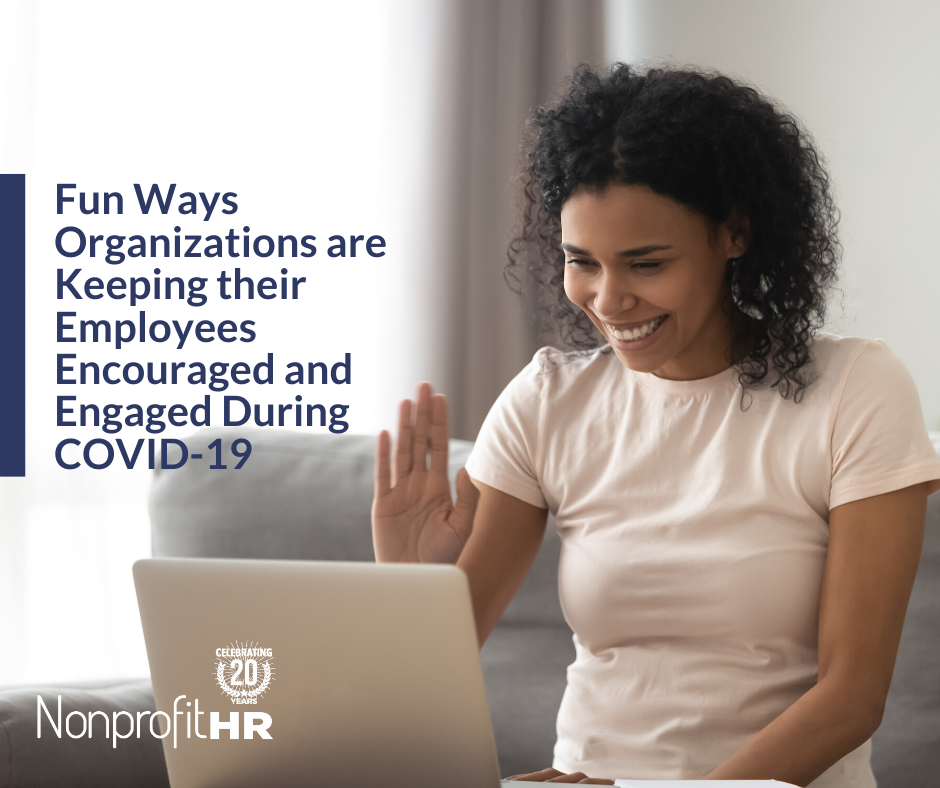WTOP: 5 ways nonprofits can…
By 2020, Millennials are expected to account for 50% of the global workforce and 75% by 2025. Yet millennials, the generation loosely defined as those born between 1980 and 2000, get a bad rap in the workplace. We have all heard many of the stereotypes, ‘they are lazy, entitled, too forward/ambitious for their own good.’ Ready or not, the change is here and a majority millennial workforce will likely spark an evolution of the executive role. Is your organization prepared for the transition?
New values will lead to new structures and new styles of leadership that will transform the way the C-suite functions, leads, and gauges success. According to a recent American Express report, Redefining the C-Suite: Business the Millennial Way, those new values are autonomy, authorship and reciprocity. So, how do these values translate in the workplace?
You say restless. We say curiosity and confidence. Both are key qualities of effective leaders.
One defining characteristic of the Millennial generation is the need for continuous change, development and learning. Sometimes this learning-mindset is perceived as restlessness, premature job hopping, or unwarranted expectations to quickly move up the ranks. And yes, millennials want to learn (about their jobs and themselves), master tasks and may be likely move on to something else. Findings from our 2019 Nonprofit Talent Retention Survey show that just over 60% of the nonprofits that find it most challenging to retain employees under 30, credit “lack of opportunity for upward mobility/career growth” as a primary driver for voluntary turnover. As more millennials saturate the workforce, nonprofits will be challenged to make clearer paths to leadership and career enrichment by way of providing better access to professional development. For the C-suite, a commitment to learning often translates to less resistance to change which will likely increase operational efficiencies and improve strategy.
A similar trait millennials tend toward is a can-do attitude which shouts, ‘I can learn how to do just about anything.’ This confidence shows up as an interest in more challenging roles and greater responsibility. It shows up as bravado to share their opinions in settings that may make their older counterparts cringe. While it may be off-putting to older generations, this type of gravitas is useful in leadership and fundraising roles that require confident decision-making. Another benefit of this tendency in the C-suite is a healthy appetite for taking risks. Leaders who are willing to calculate and take risks help nonprofits boldly explore and test unconventional ways to achieve their missions.
Passion meets Purpose.
One of the main things that stand out about millennials is their desire to connect passion and purpose with their work. For many in this group, it is not just about what you do, it is about why and how you do it. Millennials want to be linked to causes that are bigger than themselves. They need to feel that connection and know that the work they do is important regardless of their roles.
The bent toward meaningful work presents the nonprofit sector with an opportunity and a potential dilemma. Greater focus on purpose and passion will make the mission-driven work that nonprofits pursue more attractive. Millennial leaders will make more of an effort to shape roles and functions that are more directly tied to impact. This shift could also mean that social enterprises will likely give nonprofits a run for their money in terms of attracting talent. Purpose and profit are no longer mutually exclusive, so millennial leaders of nonprofits will be challenged to communicate when attracting new people.
What else does this mean for the future of the C-Suite?
Millennials undoubtedly view leadership in a different way. About a third of Millennials think that the CEO role will no longer be relevant in its current format . With Millennials, we see more collegial focus which may lead to flatter organizational structures across nonprofits. Millennials are also expected to focus more on shaping culture than strategy. Culture-focused leaders put the focus back on their people, an approach that Nonprofit HR has long promoted.
What should and can be done now?
Instead of regarding the way of Millennials as misguided ambition, there are opportunities for older generations to mentor and guide aspiring leadership. Many of the differences that show up with millennials come from life stage instead of some inherent traits. So, there are opportunities to create roadmaps for leadership and opportunities for mentorship. Also, keep in mind that many of the beliefs, values and expectations of Millennials have been found to be amplified in Gen Z’s.
Millennials are paving the way for a different approach to life and doing business. The savvy nonprofit will incorporate a multigenerational workforce concept into its talent management strategy, knowing that adapting is essential to building and sustaining a mission.





























